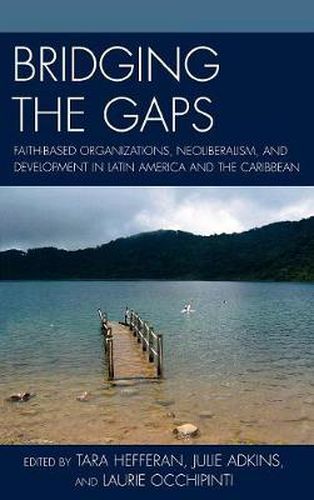Readings Newsletter
Become a Readings Member to make your shopping experience even easier.
Sign in or sign up for free!
You’re not far away from qualifying for FREE standard shipping within Australia
You’ve qualified for FREE standard shipping within Australia
The cart is loading…






As neoliberal philosophies and economic models spread across the globe, faith-based non-governmental ( third-sector ) organizations have proliferated. They increasingly fill the gaps born of state neglect by designing and delivering social services and development programming. This collection shines a much-needed critical light onto these organizations by exploring the varied ways that faith-based organizations attempt to mend the fissures and mitigate the effects of neoliberal capitalism and development practices on the poor and powerless. The essays-grounded in empirical case studies-cover such topics as the meaning of faith-based development, evaluations of faith-based versus secular approaches, the influence of faith-orientation on program formulation and delivery, and examinations of faith-based organizations’ impacts on structural inequality and poverty alleviation.
Bridging the Gaps demonstrates the vital importance of ethnography for understanding the particular role of faith-based agencies in Latin America, revealing both the promise and the limitations of this new mode of development.
$9.00 standard shipping within Australia
FREE standard shipping within Australia for orders over $100.00
Express & International shipping calculated at checkout
As neoliberal philosophies and economic models spread across the globe, faith-based non-governmental ( third-sector ) organizations have proliferated. They increasingly fill the gaps born of state neglect by designing and delivering social services and development programming. This collection shines a much-needed critical light onto these organizations by exploring the varied ways that faith-based organizations attempt to mend the fissures and mitigate the effects of neoliberal capitalism and development practices on the poor and powerless. The essays-grounded in empirical case studies-cover such topics as the meaning of faith-based development, evaluations of faith-based versus secular approaches, the influence of faith-orientation on program formulation and delivery, and examinations of faith-based organizations’ impacts on structural inequality and poverty alleviation.
Bridging the Gaps demonstrates the vital importance of ethnography for understanding the particular role of faith-based agencies in Latin America, revealing both the promise and the limitations of this new mode of development.